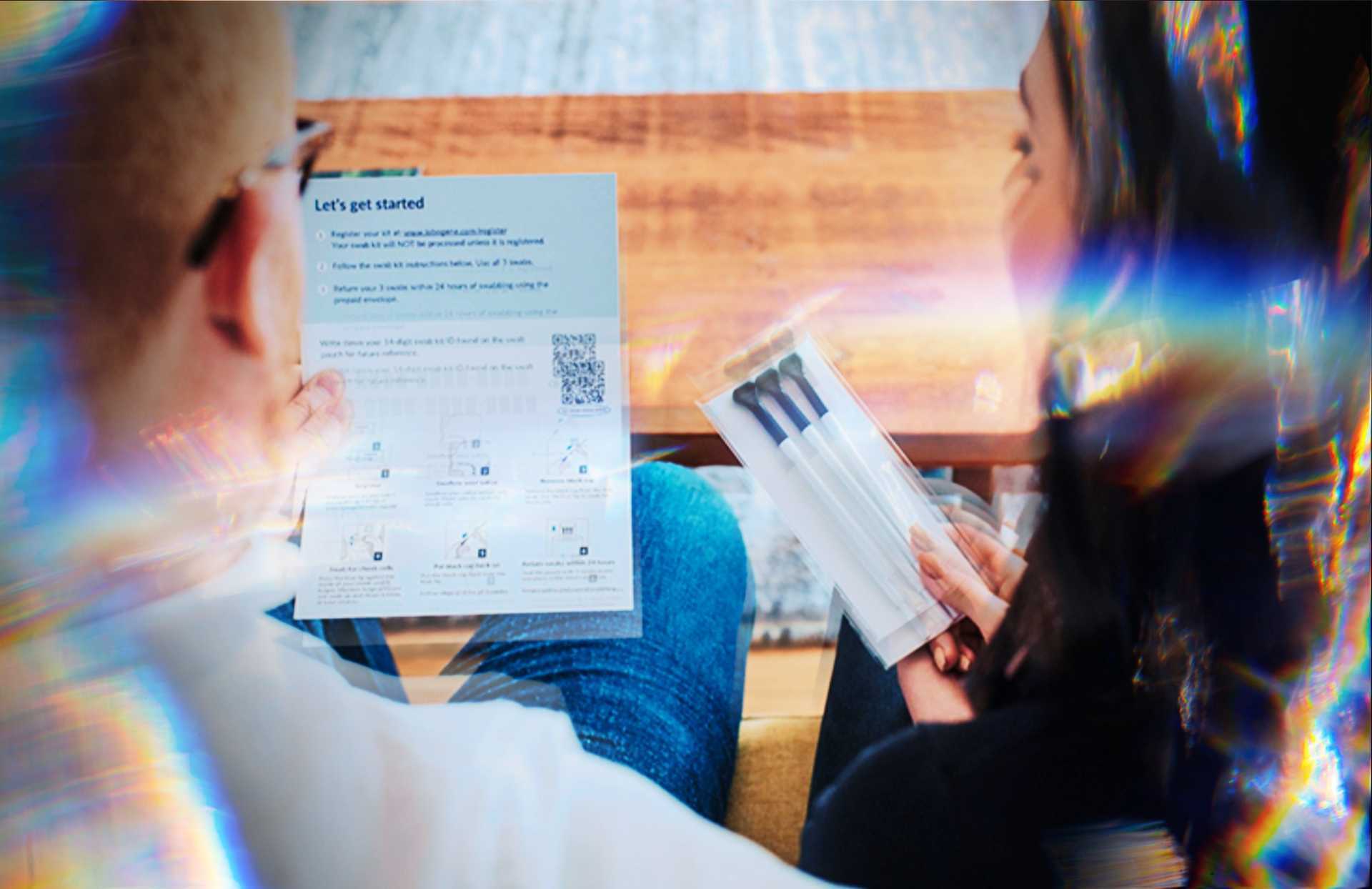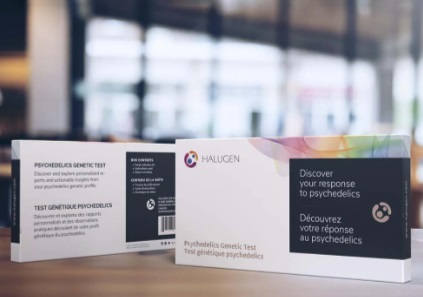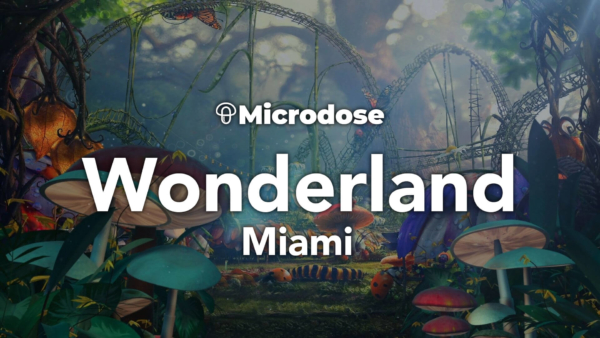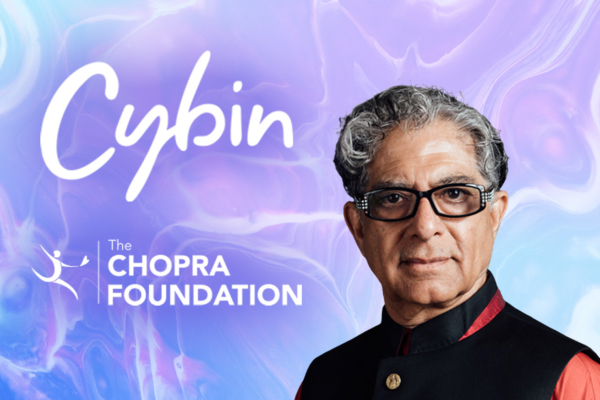
With psychedelic therapy soon to be accepted in the US, it is important that we evaluate which patients will receive the biggest advantage from psychedelic treatments and who might experience adverse reactions.
Since 2021, HaluGen Life Sciences – based in Vancouver – has released its pioneering DNA testing kit that is set to revolutionize the way psychedelics are prescribed for to treat mental health illnesses.
In an effort to provide clinicians with a measurable way to assess how patients may react to psychedelic drugs, HaluGen uses genetic testing kits which are supposedly able to provide users with valuable insights on how they might be affected by certain psychedelics like ketamine, psilocybin, LSD, MDMA and ayahuasca.
Psychedelic Genetic Testing For Harm Reduction
The idea behind the psychedelics genetic test is that it can help clinicians measure how their patients will respond to psychedelic drugs.
Even those who want to take a cautious approach and have never experienced psychedelics can purchase these kits individually, making it a great method for harm reduction.
Most people taking psychedelics seem to be generally safe physiologically but there are some potential risks to keep an eye out for as these drugs may cause one’s heart rate and blood pressure to elevate significantly.
For example, there’s a chance you can have a cardiac adverse event if you take psychedelics in large doses and have an underlying heart condition.
Moreover, individuals with a weakened liver or kidney function are prone to having issues processing these medications and metabolizing them.
Let’s also not forget Hallucinogen Persisting Perception Disorder (HPPD), a condition that may occur after using psychedelics such as psilocybin. Unlike the flashbacks associated with PTSD, HPPD comprises of perceptual changes in the weeks or months following psychedelic ingestion and is not linked to any physical adjustments or harm to your nervous system. Although its prevalence rate remains unknown, this disorder is deemed rare and should be taken seriously if experienced.
For CAD$89, HaluGen offers a personalized psychedelic report with the help of an array of surveys and questionnaires that monitor five distinct gene variants.
This approach uses pharmacogenetic testing—a type of test that looks at how certain drugs interact with certain genes—to identify which patients may be more likely to experience negative effects from psychedelic therapy sessions and adjust treatment accordingly.
HaluGen has identified several genes associated with increased sensitivity to certain psychedelics, so they can use genetic testing results to determine if a patient would benefit from lower doses or shorter therapies sessions than usual.
How Does the Psychedelics Genetic Test Work?
According to the company website, HaluGen’s psychedelic pre-screening platform offers a way to recognize changes in the effects of psychedelic drugs and assesses short and long-term genetic risk profiles.
Users purchase the genetics testing kit consisting of a cheek swab, and then return it to the company for examination.

To provide an accurate assessment, the company assesses the cheek swab DNA sample while also having users complete comprehensive questionnaires that decipher risk factors dependent on family background and lifestyle.
The psychedelics genetic test examines five genetic variants to determine an individual’s risk of developing mental health disorders such as schizophrenia and psychosis. Additionally, the screening looks for gene variations that may impact ketamine metabolism, serotonin receptor density and other factors.
The genes tested are:
- HTRA2: to determine psychedelic sensitivity;
- CYP2B6: how ketamine is metabolized in your bloodstream;
- C4A: a variant of C4A supposedly causes disorganized synaptic pruning, raising the probability for developing mental health conditions like psychosis, bipolar disorder and schizophrenia.
- NRG1: According to the company, an association between a variation in the NRG1 gene and various mental health conditions, including psychosis, bipolar disorder, and schizophrenia.
- DISC1: According to the company, altering the DISC1 gene increases one’s vulnerability to developing mental health issues, including psychosis, bipolar disorder and schizophrenia.
This last genetic target forms the basis for their “Classical Psychedelic Report”, predicting an individual’s sensitivity to classic psychedelics like LSD, DMT and psilocybin.
What does the Classical Psychedelic Report look for?
The report evaluates the individual’s serotonin sensitivity.
The way you experience a ‘trip’ while consuming classical psychedelics such as psilocybin, LSD and DMT is partially determined by your HTR2A gene. This gene influences the baseline expression of the 5-HTR2A receptor, which binds to serotonin and sends signals in your brain containing neurotransmitters that can give rise to potential hallucinations or other mental side effects associated with psychedelic drugs.
In simpler terms, a greater amount of this receptor could mean heightened sensibility to stronger hallucinogenic effects; therefore, it will be advised that lower doses are taken at the start of treatment.
Therefore, those with this gene should practice extra caution before diving into psychedelic therapies.
The Potential Benefits of Psychedelics Genetic Testing Kit
Leveraging genetic tests to inform psychedelic therapy safety risk has the potential to revolutionize how treatments are administered, thereby creating a platform for more successful outcomes in the future. Specifically, by determining if someone possesses certain genes which may increase their likelihood of encountering negative side effects from these therapies, doctors will be able to tailor treatment plans as per each individual’s requirements – boosting security without compromising efficacy.
As researchers delve deeper into the exciting realm of psychedelic therapies, we may soon witness remarkable advancements in how these treatments are conducted within clinical settings.
However, while some people are undergoing psychedelic therapy under the watchful eye of trained medical professionals through the clinical trials route, in ketamine clinics or retreat centers, there are still those who take a riskier route and will source their dose of magic mushrooms or LSD through the gray market to self-medicate.
And not all people wishing to experience the potential benefits associated with psychedelics are well educated in harm reduction.
This kit could be a simple step for regular folk to ensure their safety while consuming psychedelics.
This would definitely be a great way to prevent the “one bad apple” scenario. And isn’t this what we all want?





